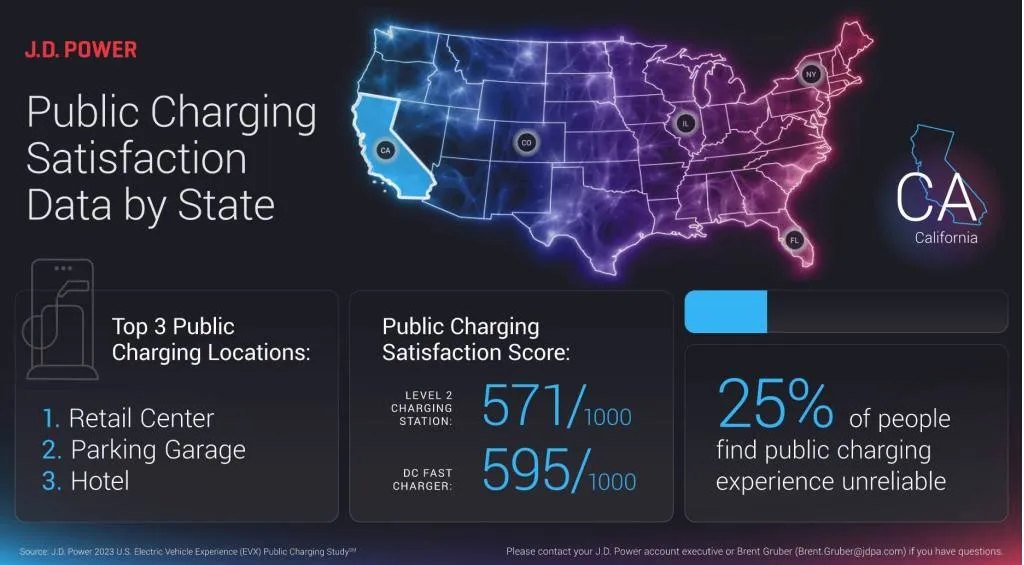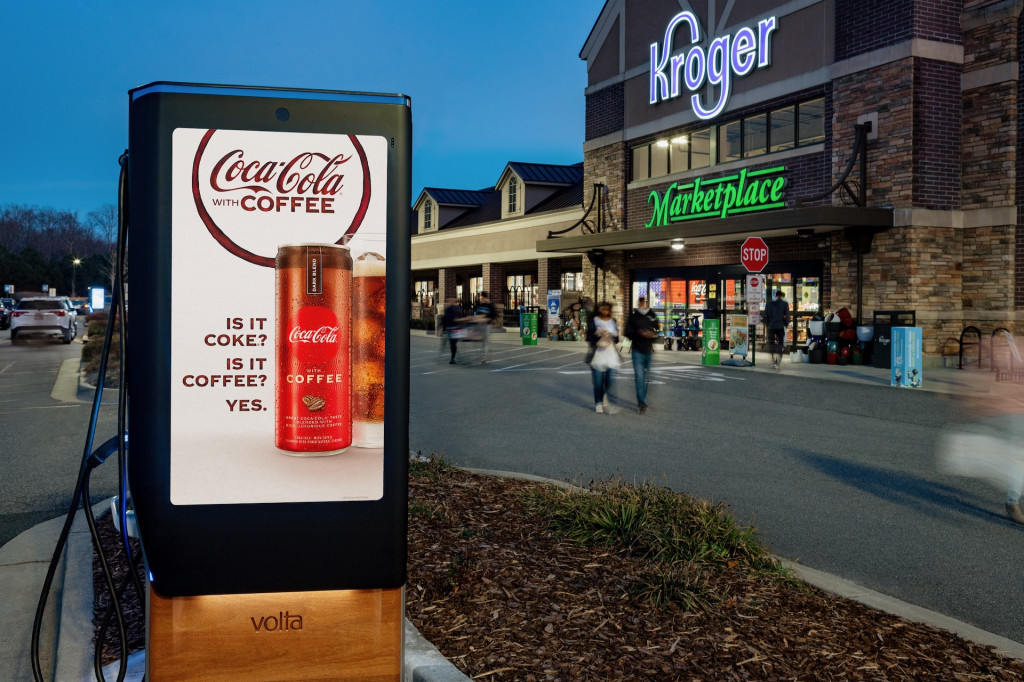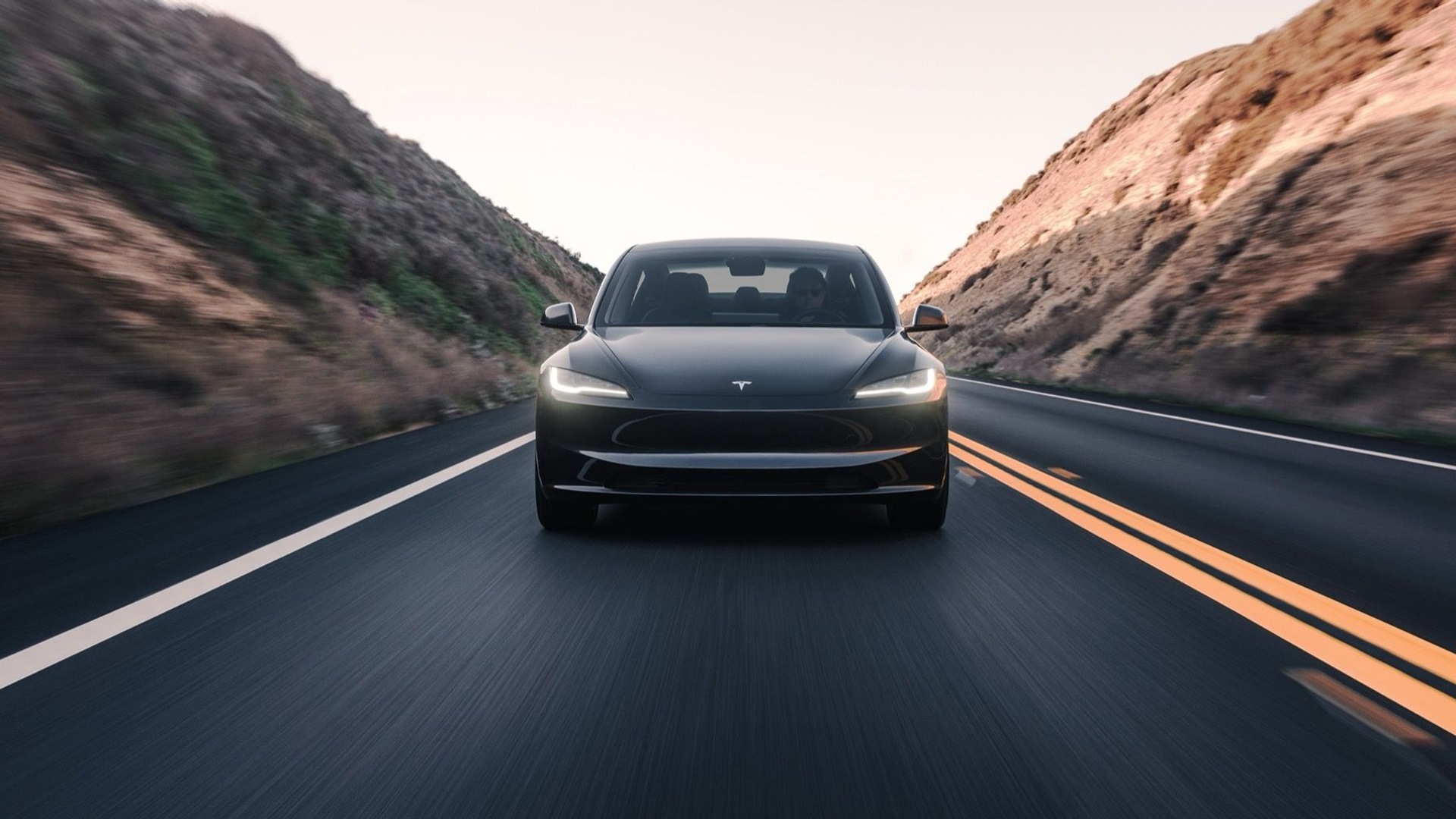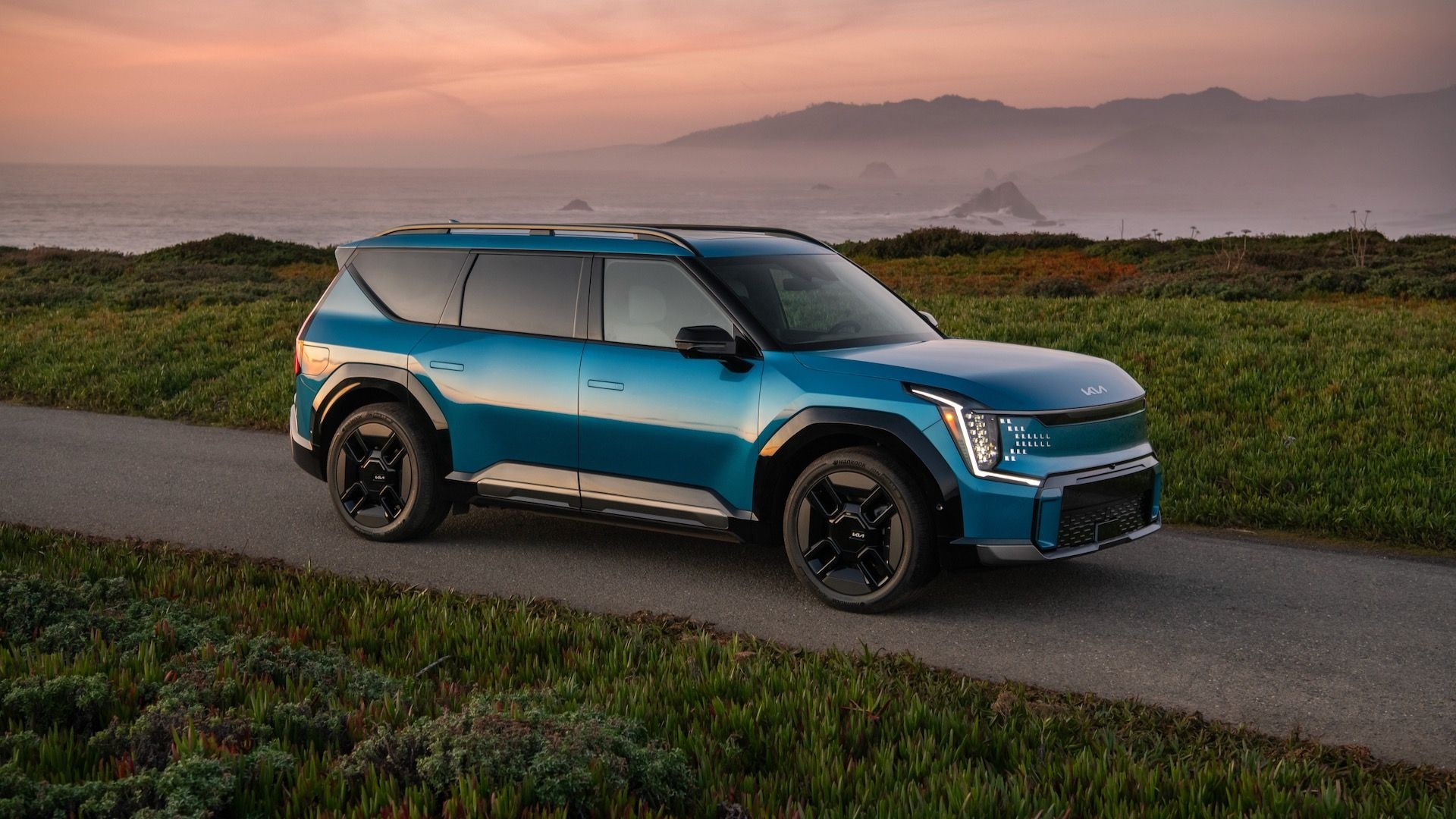As automakers continue to introduce more EVs, public charging is proving unreliable, according to the latest J.D. Power Electric Vehicle Experience Public Charging study.
The study found that 20% of EV drivers who visited a charging station did not charge their vehicles. Reasons for this ranged from chargers being inoperable to long lines, according to J.D. Power.
The frequency of unsuccessful visits to charging stations varied geographically. EV drivers in the Miami-Port St. Lucie-Ft. Lauderdale area had it worst, failing to charge their vehicles 35% of the time. The Seattle-Tacoma, Denver-Aurora, and Dallas-Ft. Worth areas each saw no charging at 29% of visits. The lowest frequency was in the Cleveland-Akron-Canton area, where drivers were unable to charge during 12% of visits.

Public charging satisfaction in California (from 2023 J.D. Power EVX Public Charging study)
Satisfaction with charging speed has declined as well, the study found. The customer satisfaction score for Level 2 charging speed was down to 455 points (out of a possible 1,000), a decrease of 36 points from last year. The comparable score for DC fast charging decreased 30 points from last year, to 588. Granted, this could be related to the push toward ever larger battery packs as a bandage for low efficiency, which means more time spent charging at a given power level.
These factors contributed to general dissatisfaction with public charging. The customer satisfaction score for public Level 2 charging was 617 points, which J.D. Power was 16 points lower than a year ago and the lowest level since the study began in 2021. Customer satisfaction with DC fast charging dropped 20 points, to 654.
This isn't limited to areas relatively new to EVs and charging infrastructure. In California—which has by far the most EVs and public chargers of any state—25% of people surveyed found the public charging experience unreliable. Customer satisfaction scores were actually lower than the national average, at 571 points for Level 2 charging and 595 for DC fast charging.

Volta charging
Among charging networks, Volta was ranked highest for Level 2 charging with a score of 665 points, beating out the second-place Tesla Destination network (661) and ChargePoint (618). Volta started with an ad-supported interface that simultaneously called itself a "media network," and was bought by Shell earlier this year.
The Tesla Supercharger network was the highest-ranked DC fast-charging network, with a score of 739 points. It's been ranked highest in every year of the study, and was the only fast-charging network to rank above the segment average this year. The question is whether that level of customer satisfaction will be maintained for EVs from other brands, which will soon start accessing the network in large numbers thanks to deals with several major automakers—including Ford and GM.
The federal government is also taking steps to tackle EV charger reliability across the board with some new standards. Based on the results of this study, regulators have their work cut out for them.












